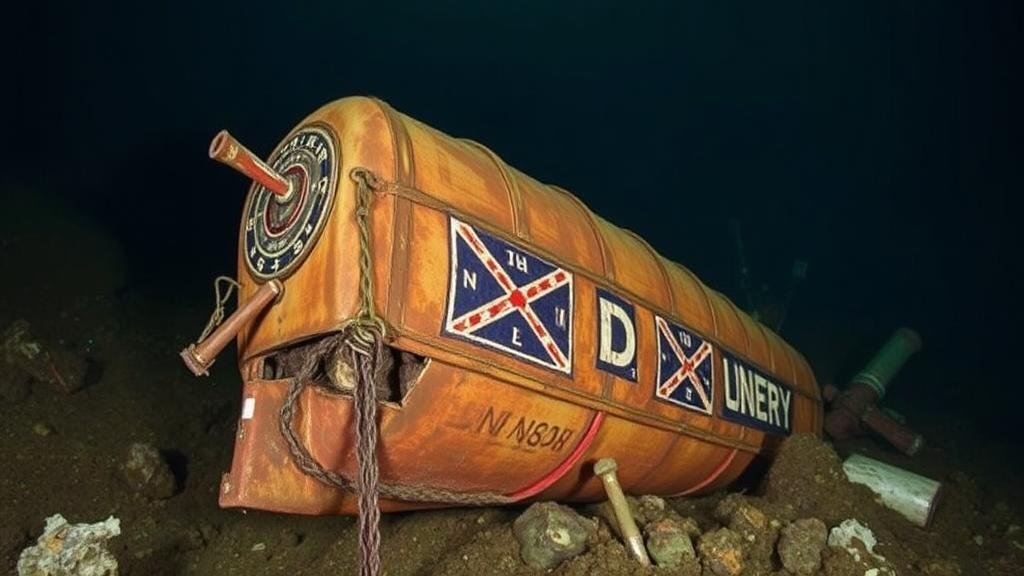Mining Shipwreck Survivor Logs for Forgotten Cargo Recovery Efforts
Mining Shipwreck Survivor Logs for Forgotten Cargo Recovery Efforts
Shipwreck survivor logs, often viewed as mere historical artifacts, hold immense potential for contemporary efforts in underwater archaeology and marine salvage operations. These logs not only document personal experiences but also provide invaluable details about the cargo carried, which may lead to significant recovery efforts of lost treasures. This article delves into the methodologies for mining these logs, the potential recoveries from shipwrecks, and highlights historical examples to illustrate these efforts.
The Importance of Survivor Logs
Survivor logs offer a unique perspective on maritime disasters and can be pivotal in understanding the context surrounding shipwrecks. e logs typically document:
- The circumstances leading up to the wreck.
- The cargo being transported.
- The location and conditions at the time of the wreck.
For example, the logbooks from the SS Central America, which sank in 1857, not only offered insights into the vessel’s journey but also detailed its cargo of gold. This catastrophic loss influenced economic policies and provides a compelling case study in cargo recovery efforts.
Historical Context and Case Studies
Historically, shipwrecks have been a rich source of recovery due to their contents. Notable cases where survivor logs have guided recovery missions include:
- SS Central America (1857): Known as the Ship of Gold, the recovery efforts have so far yielded over $100 million in gold.
- HMS Sussex (1694): This British warship sank near the coast of Gibraltar, and its survivor logs noted significant amounts of gold and other treasures.
- RMS Titanic (1912): Although primarily known for its tragic loss of life, the logs offer details on personal effects, cargo, and items of historical significance that are still sought after today.
Mining Techniques for Extracting Relevant Data
To maximize the potential of survivor logs, researchers employ various techniques. e include:
- Textual Analysis: Researchers utilize methods of textual analysis and natural language processing to extract key events and cargo descriptions from historical documents.
- Geographic Information Systems (GIS): By mapping accounts of shipwreck locations, GIS technology facilitates a visual representation of areas rich in potential cargo recovery.
- Archival Research: Delving into historical maritime archives to locate survivor logs can yield a comprehensive understanding of the ships final voyage.
Implications for Modern Recovery Efforts
The resurgence of interest in shipwrecks and their cargo can be attributed largely to advances in technology. Sophisticated underwater drones and imaging techniques allow for more efficient surveying and excavation of wreck sites. For example, the use of autonomous underwater vehicles (AUVs) has revolutionized the speed and accuracy of locating shipwrecks.
Also, successful cargo recoveries have significant economic impacts. recovery of goods from wrecks can influence markets; for instance, after the recovery of gold from the SS Central America in the 1980s, the influx of gold changed market dynamics and heightened interest in further expeditions.
Challenges and Ethical Considerations
While the potential for recovery is vast, ethical concerns regarding the excavation of maritime sites must be addressed. Salvage operations can lead to the degradation of culturally significant sites if not conducted responsibly. Policies need to be instituted to protect underwater heritage and ensure that recoveries are done in compliance with international laws, such as the UNESCO Convention on the Means of Prohibiting and Preventing the Illicit Import, Export and Transfer of Ownership of Cultural Property (1970).
Conclusion
Mining shipwreck survivor logs is a multifaceted endeavor that spans historical research, modern technology, and ethical considerations. With careful analysis and responsible practices, these logs can lead to significant discoveries and recoveries that enhance our understanding of maritime history and contribute to the field of underwater archaeology. Those involved in recovery efforts must balance economic interests with the preservation of cultural heritage, ensuring that the legacies of these shipwrecks are respected.
Actionable Takeaways
- Researchers and archaeologists should collaborate to develop methodologies for effectively mining survivor logs.
- Stakeholders must address ethical implications and establish clear guidelines for recovery efforts.
- Promoting public awareness about maritime heritage can foster support for preservation initiatives.



